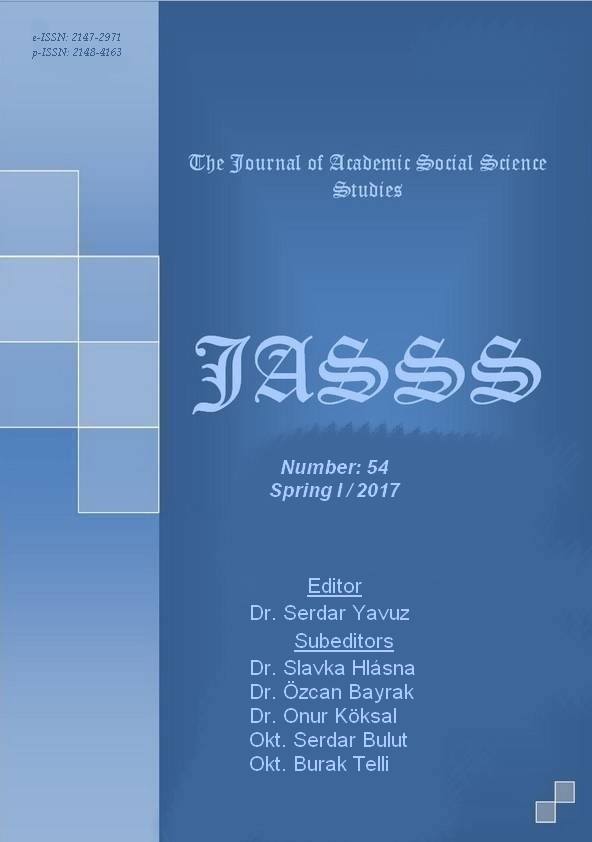Author :
Abstract
Marxist edebiyat eleştirisi Marxist politik düşünceler üzerine geliştirilmiştir. Marksist eleştiri, 1850'lerde Marx'ın, kültür ve toplum hakkında önemli açıklamalarda bulunmasına rağmen, 20. yüzyılda ortaya çıkmış bir olgudur. Marx’a göre, ideoloji, politika ve sanat gibi bir toplumun üst yapısını oluşturan öğeler o toplumun ekonomik yapısı tarafından belirlenir. Karl Marx "Komünist Manifesto" adlı eserinde komünizmin temel kavramlarını tartışır ve toplumların ve ekonomik sistemlerinin sınıfsız bir toplum yaratmak için sürekli bir evrim sürecinde olduğunu iddia eder. Marksist eleştiride önemli olan husus, edebiyatın, bu edebiyatın üretildiği toplumun ideolojik ve ekonomik gerçeklerinden ayrı tutulamayacağı ya da izole edilemeyeceği yönündedir. Diğer taraftan, pratikte bir neo-Marxist olan Frankfurt Okulu, aydınlanma geleneğinin bir eleştirisidir. Radikal değişim ve iki okul arasındaki eleştiri farkı entelektüel temeldedir. Aslında bir toplumsal araştırma kurumu olan Frankfurt Okulu yeni bir neo-Marxist teori geliştirmiştir. Frankfurt Okulu üyeleri on dokuzuncu yüzyılın son teorisyenlerinden yararlanmışlardır. Üyeleri temel olarak çoğulculardır. Walter Benjamin Frankfurt Okulunun önemli bir üyesidir. O da Marxismin etkisi altındaydı ve Marxist Okuluna bir eğilim göstermişti. Benjamin sosyal eleştiriyle dilbilim analizini tarihsel nostaljiyle birlikte işler. Benjamin, sosyal eleştiri ve dilsel analiz ile tarihi nostaljiyi harmanlar. Benjamin için temel estetik farklılaşma, yaratılış ve oluşum arasındaki temel farklılıktır. Benjamin’e göre eleştiri bir sanat eserinin gerçeğinin sunumudur. Eleştiri bir eserin başladığı şeyi neticeye ulaştırmaya, tamamlamaya ve sistematize etmeye çalışır.
Keywords
Abstract
Marxist literary criticism has been developed on the basis of Marxist political ideas. Even though Marx makes important statements about culture and society in the 1850s Marxist criticism is a phenomenon that came into being in the twentieth century. According to Marx, the ideology, politics, and art which make up the superstructure of a society are all determined by the economic structure of that society. Karl Marx discusses the basic concepts of communism in his work “The Communist Manifesto” and asserts that societies and their economic systems are constantly in a process of evolution to create a classless society. The point in Marxist criticism is that literature cannot be separated or isolated from the ideological and the economic realities of the society in which this literature is produced. On the other hand, the Frankfurt School, which is practically a neo-Marxist one, is a critique of the enlightenment tradition. The radical change and the difference of critique between the two schools lie on the intellectual basis. As an Institute for Social Research originally, the Frankfurt School developed a neo-Marxist social theory. The members of the Frankfurt School borrowed from the theorists of the late- nineteenth century. Its members were basically pluralists. Walter Benjamin is an important member of the Frankfurt School. He was also under the influence of Marxism and showed an inclination to Marxist School, too. Benjamin mixes social criticism and linguistic analysis with historical nostalgia. The fundamental aesthetic differentiation for him is the one between creation and formation. According to Benjamin, criticism is the presentation of truth of a work of art. Criticism tries to culminate, complete and systematize what the work of art began.





